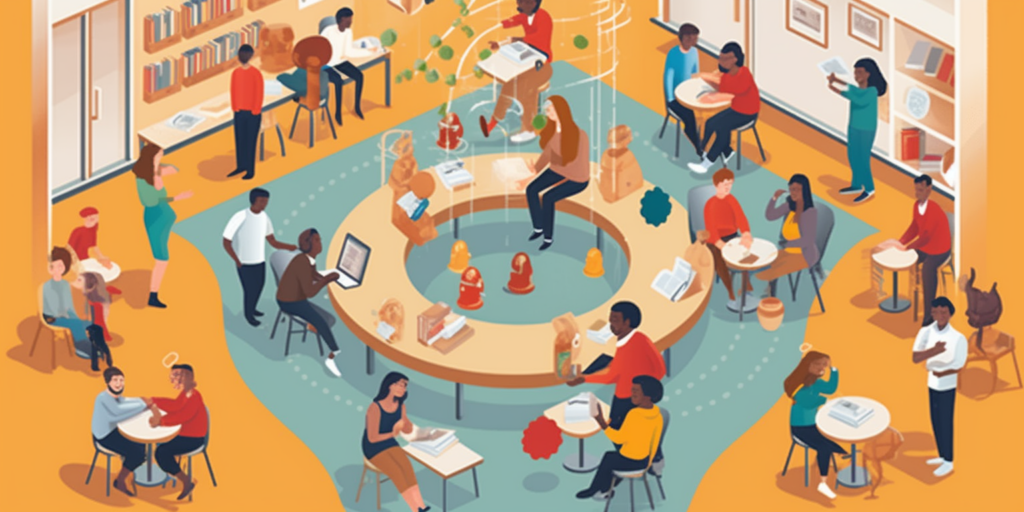Overcoming Stereotypes: The Role of Intellectual Humility and Brilliance Orientation in Education and Work
Recent research has shown that our perceptions of intelligence and ability can have implications for learning, inclusiveness and diversity in educational and professional settings. This article reviews a paper by Porter & Cimplian (2023) and a paper by Muradoglu et al. (2023), each offering unique insight into this issue.
1. The Impact of Intellectual Humility on Learning
The research by Porter & Cimplian (2023) emphasizes the importance of intellectual humility – the ability to admit confusion, ignorance and mistakes – in the learning process. Their research shows that environments that emphasize intellectual prowess often discourage the expression of intellectual humility. Another important finding was that math emerged as the subject in which students struggled most to express intellectual humility, more than subjects such as physics, chemistry and biology. How does express itself? Think about a typical math class, where students often feel uncomfortable asking questions or admitting mistakes.The Unintended Consequences of a Focus on Intellectual Ability
Porter & Cimplian's research points to the detrimental effects of an overemphasis on intellectual ability in learning environments. When students feel they have to constantly prove their intellectual ability, they may be less willing to ask questions, make mistakes, or share their insecurities. This can hinder learning because these factors – asking questions, making mistakes, and sharing uncertainties – are crucial to learning and growth. In addition, such an environment can contribute to unhealthy competitive pressure and stress among students. The authors therefore advocate a pedagogical approach that promotes and values intellectual humility, and that emphasizes the importance of learning and development over proving ability.2. Brilliance Orientation and Diversity
The study by Muradoglu et al. (2023) shows that women and ethnic minorities are under-represented in fields and professions that people tend to think require “brilliance”. This applies, among other things, to science subjects, mathematics and philosophy, but also certain leisure activities, such as chess.This under-representation is due in part to the stereotyping of these groups as less able, as well as negative psychological experiences within these "brilliance"-oriented environments. Muradoglu et al.'s research also highlights the intersection of gender and racial/ethnic stereotypes in brilliance-oriented fields. It shows that children associate brilliance with certain racial/ethnic groups, especially white males.
The Harmful Effects of Stereotypes in 'Brilliance' Oriented Fields
Muradoglu et al. point out the detrimental effects of stereotyping and exclusion in 'brilliance'-oriented fields. When women and ethnic minorities are stereotyped as less able, this can erode their self-confidence and aspirations, and lead to self-exclusion from these fields. In addition, the negative psychological experiences that come from working or studying in an environment that sees them as less capable may contribute to their under-representation. Not only is this detrimental to these individuals, but it also reduces the diversity and potential for innovation in these fields. The authors therefore advocate measures to counter stereotypes and prejudice, and to make "brilliance"-oriented fields more inclusive and inviting to all individuals, regardless of gender or ethnicity.3. The Role of Policy and Organizational Culture
Policy and organizational culture are essential for diversity and inclusion. Policies can focus on creating diversity programs, such as grants and mentoring programs for underrepresented groups. In addition, policies can be introduced against prejudice and discrimination, including awareness training for employees. In terms of organizational culture, creating a respectful environment that values diversity is important. This includes fostering empathy, respect and collaboration, as well as encouraging employees to share their unique perspectives. This requires a dedicated commitment from leadership and employees. In short, to make education and work environments more inclusive and diverse, well-thought-out policies and a positive organizational culture are crucial.4. Why are inclusiveness and diversity important?
Inclusiveness and diversity in education and work promote innovation by bringing different perspectives together, leading to more creative solutions. They are also crucial for social justice, as they help reduce systemic inequalities and ensure equal opportunities for all. These environments should reflect the diversity of society, contributing to understanding and respect for differences. In addition, by adopting an inclusive attitude, institutions and companies can attract and retain a wider range of individuals, including those with diverse skills, experiences, and backgrounds, enhancing their competitiveness. Finally, diverse and inclusive environments prepare individuals for a globalized world, where interaction and collaboration with diversity are essential.5. Is the emphasis on Brilliance sometimes not justified and necessary?
People reading the above might object that the emphasis on "brilliance" or intellectual ability is justified in many fields because these qualities are essential to success. They can argue that reducing this emphasis can lead to lower performance standards (Maarten van Rossum recently did). But it is more nuanced.It is important to emphasize that encouraging intellectual humility or acknowledging the harmful effects of "brilliance" stereotypes does not mean minimizing the value of intelligence or ability. Instead, the above studies argue for a more nuanced approach that recognizes that learning and growth often take place through making mistakes and acknowledging areas of ignorance. In addition, excessive focus on “brilliance” can exclude certain groups, which can ultimately limit diversity and innovation in these fields.

Comments